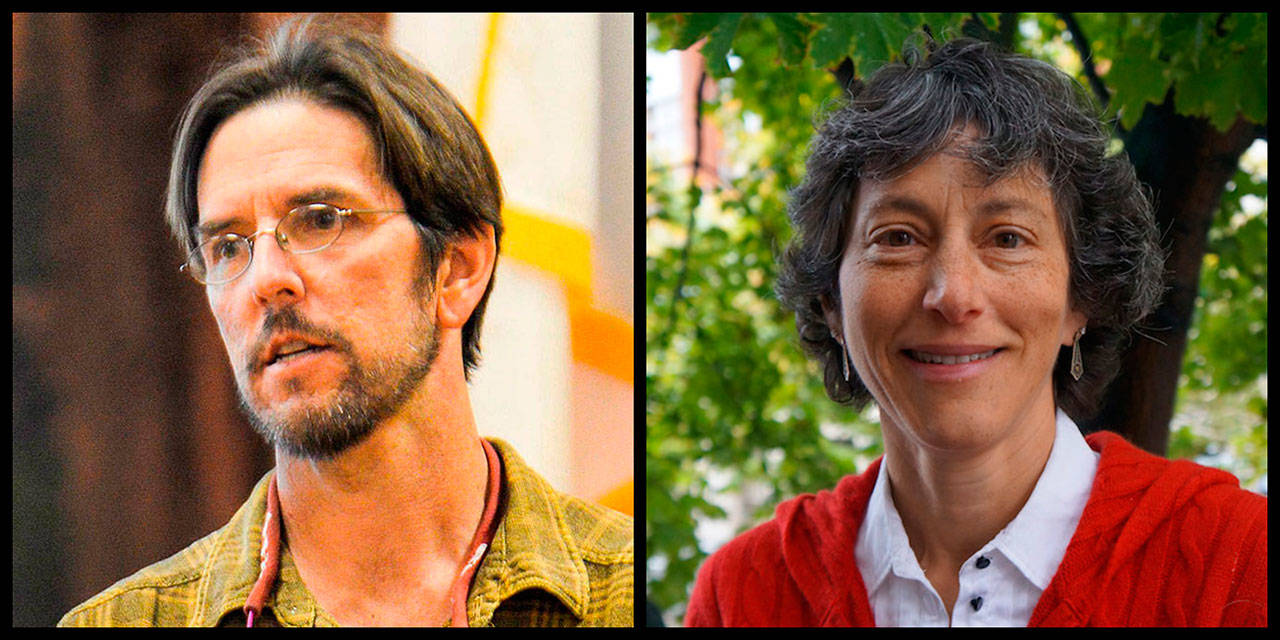The 2021 Washington Legislative session was a historic one for climate and clean energy.
This session brought advancements in climate leadership, energy affordability, transportation electrification, and investments in clean energy and efficient buildings. Progressive Democrat and clean energy champion Joe Fitzgibbon, representing Vashon-Maury Islands and the 34th District, played a central role in virtually all of the climate legislation that passed in what many observers have described as the most consequential legislative session in memory.
One of the most notable climate bills is the Climate Commitment Act (SB 5126), which sets a statewide cap on greenhouse gas emissions from major emitters in the energy, industrial, and manufacturing sectors. This bill authorizes the Department of Ecology to allocate and auction allowances for greenhouse gas emissions, oversee and enforce the program, and link the program with other jurisdictions under certain circumstances.
But this bill goes beyond reducing emission — it also requires more to be done to ensure environmental health disparities are reduced for communities that are disproportionately impacted by poor air quality and pollution. It includes provisions to ensure that the program will reduce air pollution in overburdened communities and creates an environmental justice panel that will advise the state on the program’s design and implementation.
In addition, the Clean Fuels Standard (HB 1091) also aims to reduce greenhouse gas emissions. The Clean Fuels Standard will reduce the carbon produced by transportation fuels by 20% below 2017 levels by 2038. Sponsored by Rep. Fitzgibbon (D-34), the Clean Fuels Standard has helped position Washington State as a leader nationally in confronting climate by reducing transportation contributions to climate change.
Among the new law’s requirements, regulated entities with high carbon intensity fuels can comply by blending with biofuels, developing new feedstocks and technologies to make new lower-carbon fuels or existing technologies more efficient, or by purchasing credits from carbon intensity fuels. Electric utilities will also now be required to reinvest 30% of revenue generated to benefit communities in our state that are disproportionately impacted by pollution. Electric utility revenue must also be directed toward programs to electrify transportation.
Complementing this legislation, two other bills also passed the legislature this spring (SB 5192 and HB 1287) to advance usage of electric vehicles (EVs) by expanding vehicle charging infrastructure across the state, expanding access to electric vehicle supply equipment, and setting standards for public charging.
Another bill championed by Rep. Fitzgibbon, HB 1287, increases preparedness for the zero-emissions transportation future we urgently need to bring about. It directs the state to develop a refueling infrastructure mapping tool, ensures electric utilities are planning for new transportation electrification load, and strengthens the state’s EV readiness requirements.
Another bill, SB 5295,e provides direction to the state’s Utilities and Transportation Commission (UTC) to modernize the regulation of utilities and address longstanding issues of equity and access. It includes, for example, important provisions to address the needs of often-disenfranchised communities. It supports and expands investment in low-income bill assistance and it allows for more diverse voices to participate in the UTC’s public processes by supporting funding for organizations representing vulnerable populations and highly impacted communities.
Two other important bills will have a positive impact in the 34th District and across the state. SB 5141 implements the recommendations of the environmental justice task force by directing state agencies to reduce environmental and health disparities to improve the health of Washington residents. SB 5008 benefits low-income communities and energy efficiency programs by extending a business tax exemption for funds provided by the Bonneville Power Administration and used for low-income ratepayer assistance and weatherization.
2021 proved to be a historic legislative session for Washington State — with groundbreaking progress to confront climate change by adopting policies and making significant investments to expand our clean energy economy, create jobs, and address longstanding inequities across our state.
Though you might not know it due to his low-key style, Rep. Fitzgibbon’s fingerprints are all over this year’s legislative achievements. Whether you live on Vashon, in the 34th District or elsewhere, we’re all beneficiaries of Fitzgibbon’s intelligence, effectiveness and commitment to creating a brighter and more sustainable future for all.
Joseph Bogaard is the executive director of Save Our Wild Salmon Coalition and a resident of Vashon Island. Nancy Hirsh is the executive director of the NW Energy Coalition – one of the region’s leading advocates for a clean and affordable energy future. More information is available at wildsalmon.org and nwenergy.org.



